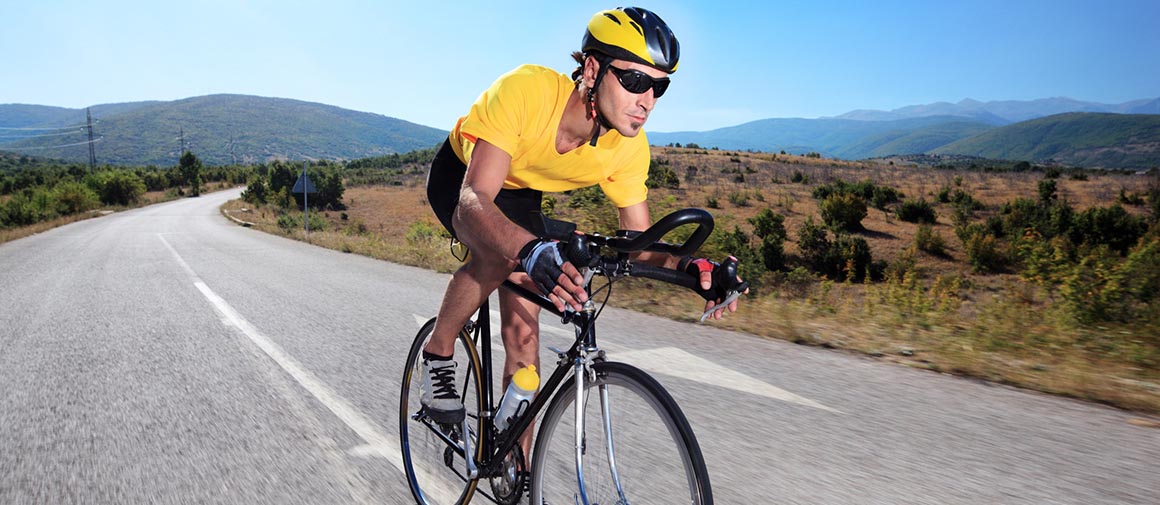Marginal Gains - it's quite likely that you have heard of the term. You might even know a little bit about it, but here we will explain everything you need to know about the theory and how you can use it to improve your exam performance.
It's a simple idea that revolutionised a sport (cycling). Many schools across the country have now tapped into its ideas and have realised that the principles of it can easily be applied to the classroom, revision and exams.
In fact, it can be used by all teachers, students and even parents.
Marginal Gains - The Brainchild of Brailsford
Marginal gains is the brainchild of Dave Brailsford (or to give him his full title): Sir Dave Brailsford MBE, CBE. The fact that he has had three of the country's most prestigious honours bestowed on him is a measure of the man.
He was in charge of British Cycling and led the team in a period when it emerged from the cycling wilderness to become the leading world nation in the sport.
In the 2004 Athens Olympics, the British Cycling Team won 2 gold medals. This had been the best performance of a British team since 1908, but under Brailsford's stewardship, the cycling team began to dominate the world stage. Throughout the decade, they won a vast array of medals in world championships in road and track (and even mountain bike and BMX) - an incredible total of 59 golds from 2003-2013.
In the 2008 Beijing Olympics and the 2012 Olympics in London, the British Cycling team amassed 8 golds in each and topped the medal table in both games.
Brailsford has also won the coveted BBC Sports Personality of the Year Coach Award twice. As manager of Team Sky, he oversaw unprecedented success in world cycling's premier event, the Tour De France, with Bradley Wiggins winning the title in 2012 and Chris Froome following up this success in 2013, and again in 2015, becoming the first ever Briton to win 2 titles.
What is marginal gains?
In 2012, Dave Brailsford explained what marginal gains is to the BBC:
"The whole principle came from the idea that if you broke down everything you could think of that goes into riding a bike, and then improved it by 1%, you will get a significant increase when you put them all together."
The team took an almost forensic approach to bringing about improvements. For example, all British cyclists were 'trained' how to wash their hands properly and thoroughly!
It sounds ridiculous, but Brailsford's thinking was all about trying to reduce the amount of training time lost to illness. He figured that in a sport where the difference between success and failure (or a gold and a silver medal) is literally hundredths of seconds, any time that had been lost from training schedules would be very costly. Improved hygiene meant that cyclists would be less susceptible to infection and less likely to miss training.
Similarly, with various competitions and championships all around the world, the cycling team would have to spend a considerable time away from home in training camps, hotels or athletes' villages.
Sleep is crucial and very often if you are away from your normal bed at home, you don't sleep as well. So, the cyclists were instructed to bring their own pillows from home to enable them to have a better night's sleep. As Brailsford says,
"They're tiny things but if you clump them together it makes a big difference."
Another example was ‘bum warmers’ to warm the buttock muscles of cyclists before a race. The extra warmth gained from these 'bum warmers' meant that cyclists would start one hundredth of a second faster than their opponents.
How to use Marginal Gains to improve your performance at school.
Start, just as Dave Brailsford did with cycling, to think about ALL the things that go into you performing well at school. Remember, marginal gains means making little improvements in a lot of things not massive improvements in a few things. Here are some ideas to get you thinking:
- Add up how much time you spend on the Xbox or social media every day. Reduce it by just 15 minutes a day. Would you really miss it? Spend the time gained revising or just doing some extra work on a particular subject. In a few months, you'll have gained a full 24 hours’ worth of extra study time!
- Use 'dead time' effectively. So, on the walk home from school, instead of listening to music, put on an Audiopi podcast or an audiobook of a text you are studying and listen to that instead.
- Replace energy drinks with water to keep you hydrated.
- When you are working, put earplugs in to keep the distractions out.
- On a piece of work, look at the targets you have been set by your teacher. These are your marginal gains!
- Go to bed 15 minutes earlier every night and get up 15 minutes later each morning. In two weeks, you'll have pretty much gained an extra full night's sleep!
Finally, remember that to be successful in anything, it's the small details that really matter.




















